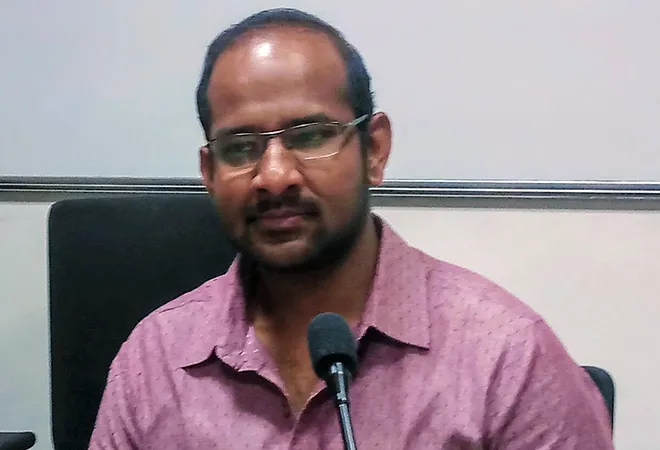Looking into the future, several challenges seem to be emerging in the Mediterranean that threaten the security of Cyprus.

India’s High Commissioner at Nicosia, Dr. R.K. Raghavan, has said that “it is important to see Cyprus as the gateway to Asia and Europe.”
Initiating a discussion at Observer Research Foundation, Chennai, on ‘Security issues in the Eastern Mediterranean and Cyprus’ on 9 February 2019, Dr. R.K. Raghavan explored some of the major challenges facing Cyprus in terms of its economy and national security in the backdrop of West Asian instability in Syria, Yemen and Iran.
The biggest challenge to the economic growth of Cyprus was its reputation of being a money-laundering haven with a suspect banking sector in the past. Dr. Raghavan explained there is immense international as well as internal pressure on the Cypriot government to restructure its banking sector, particularly following the financial crisis of 2013. In response to this, he believed that genuine efforts were being made towards this goal.
In November 2018, a directive was issued by the Central Bank of Cyprus on money laundering that gave lenders less leeway to work with shell companies. Moneyval — the council of Europe’s money-laundering watchdog — is also reported to be conducting an evaluation of Cypriot measures to combat money-laundering, the results of which are expected in May.
Cypriot Finance Minister Harris Georgiades elucidated in an interview to Bloomberg that Cyprus has invested in changing its economic model to one that relies less on foreign deposits and shell companies. In this context, natural gas exploration is a new development for the island and was being discussed as a potential driver of Cyprus’ economy, he pointed out.
Natural gas exploration
However, here there have been challenges from Turkey, which argues that such explorations infringe on its continental shelf and that they ignore the rights of Turkish Cypriots to the island's natural resources.
Israel and Greece are, however, supportive of Cypriot efforts to its offshore deposits. This is reflected in the formation of the East Mediterranean Gas Forum with its proposed plans to build a pipeline to supply east Mediterranean gas to Europe. Several questions remain unanswered regarding this endeavour — such as those on the funding of the pipeline and securing and protecting the project. There was also the question of how to resolve the conflict, if Turkey were to respond in a hostile way.
Continuing tensions
The historical tensions between Cyprus and Turkey continue with no real resolution in sight, observed Dr. Raghavan. While settlement talks were initiated in 2015 after a period of breakdown (2004-14), they were yet again unsuccessful and dialogue collapsed by 2017. Though the political conflict by and large remains placid on a day-to-day basis, Dr. Raghavan described the conflict as being akin to a Cold War.
The tensions, he argued, were largely behind the scenes and not directly visible in the interactions between Turkish and Greek Cypriots. However, they loom large in the background of any plans to change the political dynamics that affect the island nation.
Indian ties
India and Cyprus have traditionally enjoyed excellent relations. It is worth noting that Cyprus supports India’s candidature as a permanent member of the UN Security Council, as well as supporting the India-US Civil Nuclear Deal. However, this closeness has not translated into their economic relationship. In the fields of trade and tourism, there is much unexplored potential. While efforts are being made to promote Cyprus as a destination for the Indian film industry, especially owing to its beautiful beaches and sunny all-year-round weather, this is yet to come to fruition.
Looking to the future, several challenges seem to be emerging in the Mediterranean that threaten the security of Cyprus. The US withdrawal in Syria will have important consequences for Cyprus bringing with it a great deal of uncertainty and instability. The refugee crisis will pose further challenges for an island of its size. In 2018, Cyprus received 4,000 asylum requests which was a 55 per cent increase from 2017, Dr. Raghavan pointed out.
This is causing palpable anxiety in the island, he observed. Finally, a hard Brexit could adversely impact the Cypriot economy in certain sectors, principally trade and tourism. Against these challenges, the discovery of hydrocarbons could really improve economic prospects if related political issues are able to find resolution, Dr. Raghavan said.
This report was prepared by Dr. Vinitha Revi, Research Associate, Observer Research Foundation, Chennai
The views expressed above belong to the author(s). ORF research and analyses now available on Telegram! Click here to access our curated content — blogs, longforms and interviews.




 PREV
PREV

